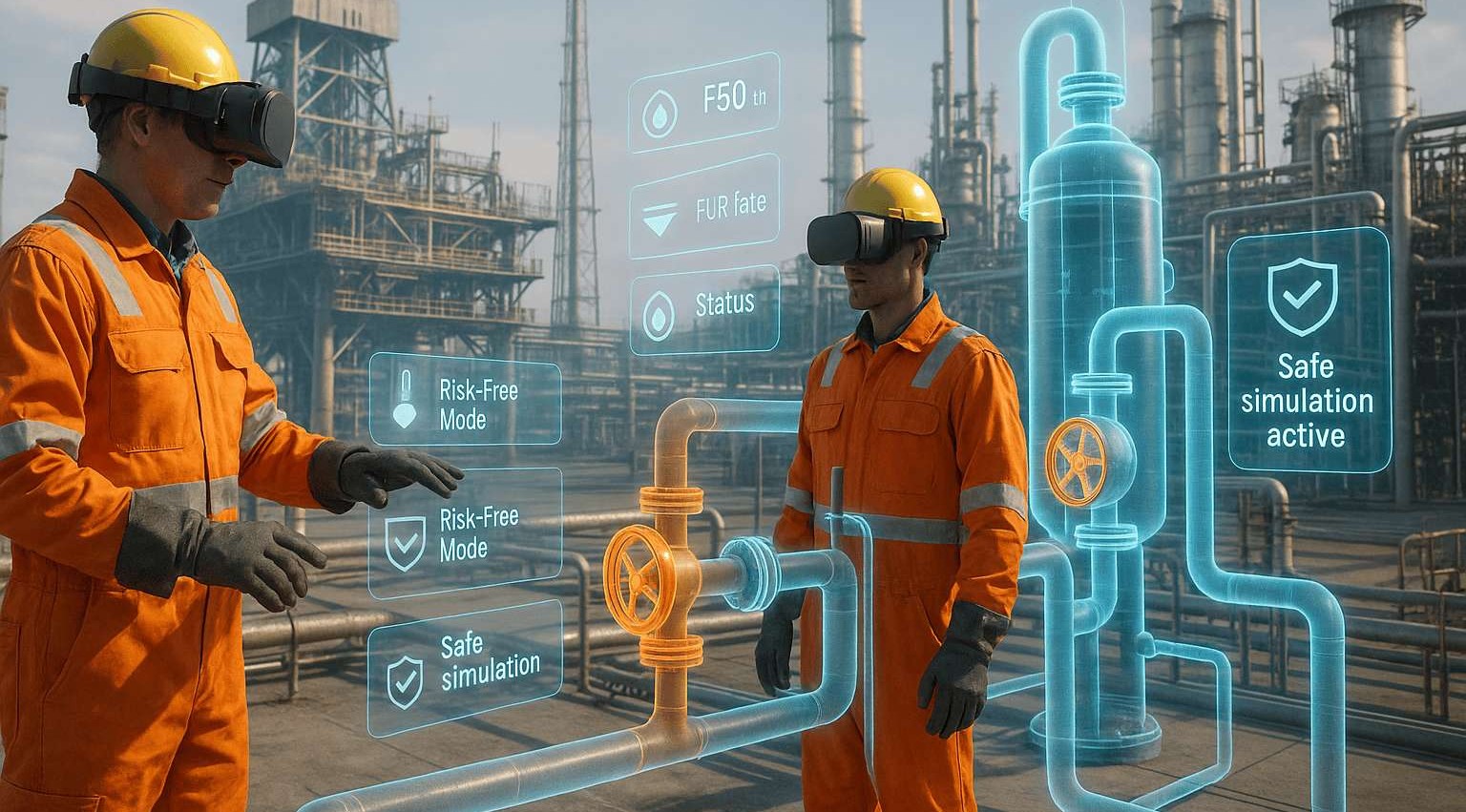The oil and gas industry operates in one of the most high-risk environments, where every task demands precision, safety, and expertise. From offshore drilling to refinery operations, even the smallest error can have major consequences. To minimize these risks and enhance workforce capability, forward-thinking companies are adopting VR training as a smarter, more effective solution for safety and operational excellence.

The Shift from Conventional Training to Virtual Reality
Conventional safety training often relies on classroom lectures or video demonstrations, which can lack engagement and real-world context. VR oil & gas training bridges this gap by allowing trainees to step inside a fully immersive simulation that replicates their work environment.
A VR training company can recreate oil rigs, refineries, and offshore sites with precise detail, allowing employees to practice complex and hazardous tasks safely. Through this technology, workers can experience emergency shutdowns, gas leaks, and equipment malfunctions in a virtual environment, building the confidence to handle them effectively in real life.
Key Benefits of VR Training in the Oil & Gas Sector
1. Improved Safety Preparedness
VR enables trainees to experience hazardous conditions safely. Practicing emergency protocols in a virtual setup enhances hazard recognition, quick response, and overall situational awareness.
2. Cost and Time Efficiency
Physical simulations, mock drills, and travel-based training can be costly and time-consuming. VR training eliminates these barriers by offering repeatable, scalable sessions accessible from anywhere, helping companies save both time and resources.
3. Stronger Knowledge Retention
Interactive and immersive environments improve learning outcomes. Trainees remember more because they actively participate instead of passively observing. This makes interactive VR training for oil and gas professionals a powerful way to enhance retention and application on the job.
4. Measurable Learning Outcomes
Modern VR platforms track every movement and decision, providing trainers with valuable insights into performance, reaction times, and skill gaps. These analytics help organizations continuously improve their training programs.
Practical Applications of VR in the Oil & Gas Sector
- Safety drills and hazard identification
- Equipment operation and maintenance
- Emergency response training
- Refinery and rig operation simulations
- Process control and standard operating procedures
Each of these modules helps create a well-prepared, safety-conscious workforce capable of handling high-pressure scenarios with confidence.
Conclusion
In an industry where safety and performance are non-negotiable, VR oil & gas training is proving to be a game-changer. It empowers teams to train effectively, respond faster, and perform better despite locations.
If you’re exploring the best VR training solutions for oil and gas companies, DevDen can help. As a leading VR training company, DevDen develops customized, high-impact training modules that make workforce development faster, safer, and more effective despite locations.
Connect with DevDen today to discover how our VR training solutions can transform your workforce into a safer, smarter, and more confident team.



